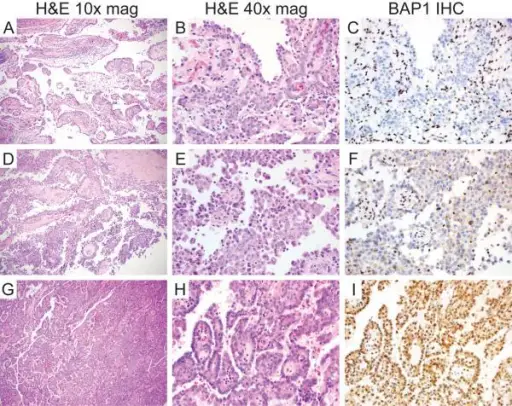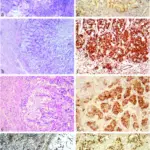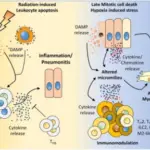Malignant mesothelioma is a cancer of the lung mesothelium associated with the inhalation of asbestos and is rare.
What is the Pathology of Malignant Mesothelioma?
The pathology of malignant mesothelioma is:
-Etiology: The cause of malignant mesothelioma is prolonged inhalation of asbestos.
-Genes involved: Mutation of BAP1 gene.
-Pathogenesis: The sequence of events that lead to malignant mesothelioma is followed by prolonged accumulation of asbestos bodies through inhalation or being close to those who have been exposed.
-Histology: The histology associated with malignant mesothelioma shows the presence of asbestos bodies.
How does Malignant Mesothelioma Present?
Patients with malignant mesothelioma typically are mostly male with a present age range of 25-94 years. The symptoms, features, and clinical findings associated with malignant mesothelioma include remaining asymptomatic for some period but due to ling term fibrosis they present with dyspnea, pulmonary hypertension and other cancers of the lung may arise
How is Malignant Mesothelioma Diagnosed?
Diagnosis of malignant mesothelioma is done through imaging the use of an MRI is the most common imaging done together with a CT scan.
How is Malignant Mesothelioma Treated?
The treatment of malignant mesothelioma is done through surgery only when it is noted in the early stages but in advanced stages, the doctor recommends chemotherapy and radiotherapy. medical treatment options include the use of immunosuppressors and targeted therapy.
What is the Prognosis of Malignant Mesothelioma?
The prognosis of malignant mesothelioma is dependent on the stage of the disease. It has a poor prognosis if-then disease has advanced in stage with a survival rate of less than one year.



